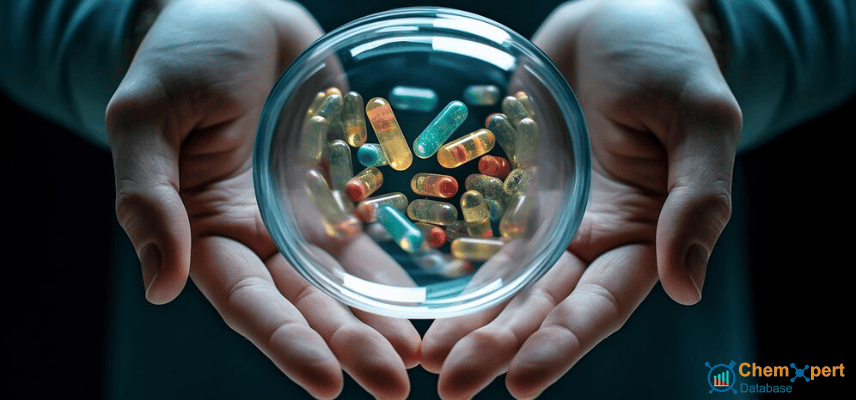
The pharmaceuticals sector is at the forefront of innovation, using technology to increase R&D and distribution processes as part of an era driven by digital transformation. But the need to protect sensitive data from cyber threats and attacks is becoming ever more urgent with this digital revolution. We will examine the importance of data safety within the pharmaceutical industries, explore important issues such as legal requirements and best practices for effective risk mitigation.
Due to the sensitive nature of the information at stake, data protection is a priority in the pharmaceuticals sector. Pharmaceutical companies are dealing with a huge amount of data, including patient records, clinical trial results, intellectual property and their own research. There is not only a serious risk to patients' privacy but also the integrity of research results and loss of competitiveness, if such data are compromised.
The pharmaceutical sector faces a number of serious data protection challenges:
1. Complex Data Ecosystem: A large number of stakeholders, including healthcare providers, research institutions, regulators and third parties, are involved in the pharmaceutical industry's data ecosystem. It is a challenging task to manage data across the network and maintain safety standards.
2. Cyber Threat Landscape: Data on pharmaceuticals are constantly at risk due to the evolution of a cyber-threat landscape. Pharmaceutical companies are targeted by threat actors, such as cyber criminals, hackers and national security actors, to steal valuable Intellectual Property, disrupt operations or compromise the health information of patients.
3. Regulatory Compliance: The pharmaceutical industry is subject to stringent regulatory requirements, such as HIPAA (Health Insurance Portability and Accountability Act) in the United States and GDPR (General Data Protection Regulation) in the European Union. Compliance with those rules represents an additional layer of complexity in ensuring the protection of Personal Information.
The pharmaceutical companies have a number of rules and standards to meet in order to ensure data security and integrity:
1. HIPAA: HIPAA lays down strict guidelines for the protection of the privacy and security of health information of patients. Protections to ensure the safety of PHI should be implemented by pharmaceutical companies in all stages of their life cycle, which include storage, transmission and disposal.
2. GDPR: In the European Union (EU), General Data Protection Regulation shall apply to medicinal product companies that process data on individuals. In order to protect personal data from unauthorized access or disclosure, it requires the measures such as encryption of information, regular security assessments are adopted.
3. ICH Guidelines: Guidelines on data integrity, including principles to ensure completeness, accuracy and reliability across the entire lifecycle of a product are provided by the International Harmonization Council (ICH) for Medicinal Products for Human Use.
Pharmaceutical companies should adopt these best practices to address the problem of data safety in an effective manner:
1. Implement Robust Cybersecurity Measures: To protect networks, systems and data against cyber threats, deploy advanced cybersecurity technologies such as firewalls, intrusion detection systems or endpoint safety.
2. Encrypt Sensitive Data: Secure sensitive data, both at rest and in transit, using strong encryption algorithms to prevent unauthorized access or interception by malicious actors.
3. Conduct Regular Security Audits: To detect and correct security weaknesses in a proactive way, carry out regular safety audits and vulnerability assessments. The training of employees on penetration testing, code reviews and security awareness is also part of this.
4. Adopt a Zero-Trust Security Model: Make sure every user, device and application trying to access resources is authenticated with a zero trust security model that does not rely on an implied trust in the network.
5. Ensure Third-Party Security: In order to reduce supply chain risks, develop robust safety protocols for suppliers and partners in the form of contractual agreements, security assessments as well as continuous surveillance.
Data protection is of utmost importance for the pharma industry, which must protect sensitive information, ensure regulatory compliance and retain confidence with stakeholders across a rapidly interconnected and digitized world. Pharmaceutical companies can enhance their data security posture and reduce cyber threats' risks efficiently by understanding the unique challenges, legal requirements and best practices laid down in this blog. In order to ensure the integrity and confidentiality of medicinal product information, there will be a need for an active and comprehensive approach to data security as technology evolves.

Sick and tired of always wondering if you are being asked to pay the right price for your APIs? This empowers you with the answers you need to make the right decisions in the Global API market.
Chemxpert Database is one of the biggest and most comprehensive directories of pharma and chemicals, manufacturers, suppliers and information. Provided with current information on prices, demand and transactions, it gives you instant feedback on whether you are buying what is right and at the right time.
Start using market intelligence today and allow yourself to be in control in the API market.
Check it out today and make more informed sourcing decisions! Learn More!